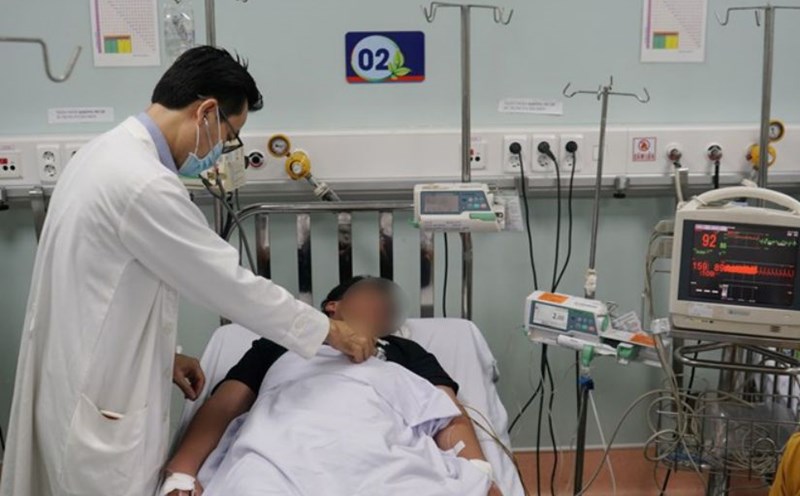The mosquito and lung index increased
In Can Tho City, as of mid-August, more than 1,600 cases of dengue fever have been recorded, an increase of 420 cases over the same period. Of the total cases recorded, about 50 cases of severe dengue fever were recorded.
According to the Center for Disease Control (CDC) of Can Tho City, it is currently the time of changing seasons, the weather is often humid, with intertwined rain and sunshine, making rainwater easily stagnant in containers around the house. This is an ideal environment for disease-carrying mosquitoes and lunges to thrive. Meanwhile, climate change, rapid urbanization and high population density are at risk of dengue fever outbreak. People's awareness in proactively preventing epidemics is a key factor, because if only a subjective area does not destroy mosquitoes and mosquito larvae, the surrounding community can be affected.
Dr. CKII Ha Tan Vinh - Deputy Director of CDC Can Tho City - said that, compared to the average 5-year cycle of a disease outbreak into an epidemic at one time, this time is considered the outbreak period in the community. Through reviews in some localities, the CDC has conducted widespread chemical spraying, continuing to propagate and mobilize people to kill mosquito larvae. The unit has been monitoring, especially the number of cases increased in each locality to soon deploy solutions.
"The index of mosquitoes and vultures in all localities of Can Tho has increased compared to last year, so each citizen should not be subjective but need to join hands to implement it. In addition to basic disease prevention, the hospital in Can Tho also updated new schedules, preparing drug metrics to care for patients. Currently, the dengue fever situation is being controlled, there is no overloading" - Mr. Vinh said.
Doctor notes serious illness
Can Tho Children's Hospital is the final destination hospital for pediatric health treatment in the Mekong Delta region.
Recorded at the hospital, the number of children with dengue fever treated as inpatients has increased sharply since July 2025 and has shown no signs of cooling down. Notably, in mid-August, there was a second case of dengue fever in a child at the Dengue Fever Department.
Ms. Do Thi Be Thi (Dong Thap province, mother of the child) said: "I thought my child would get sick once but it would not happen again, I thought the child would get sick and hot so much, have difficulty eating, and dry lips. During the treatment process, we followed the doctor's instructions, especially giving us to drink plenty of water."
Doctor Nguyen Huynh Nhat Truong, Head of the Dengue Fever Department, Can Tho Children's Hospital - informed that in the dengue fever treatment regimen, drinking water is also a form of treatment. If dengue fever has no warning signs, it must be treated by drinking a lot of water, taking standard anti-fever drugs, monitoring blood results, blood formula, then daily testing for testing... According to the normal ratio, 10 - 20% of children will have dengue shock, complications are very worrying. When there is not enough water supply, the mechanism of dengue fever leads to blood clotting.
Faced with the risk of the epidemic breaking out and spreading, the People's Committee of Can Tho City has also issued an official dispatch requesting relevant agencies and units to focus on implementing key contents to minimize the number of dengue fever cases, not allowing the epidemic to spread in the area.










